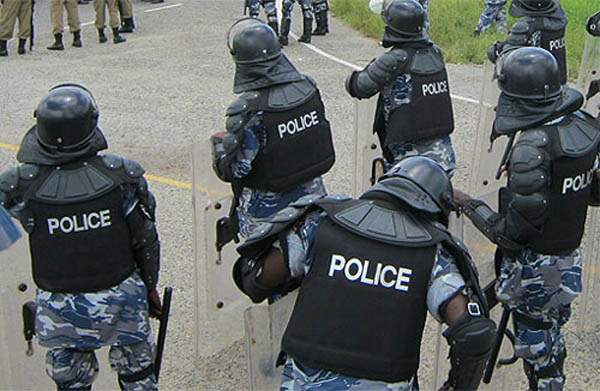
[ad_1]
Each year, nearly 800,000 people commit suicide and many more people attempt suicide. In Ghana, 1,515 people committed suicide in 2016, 80% of whom were men (WHO, 2019). The police are generally seen as a high risk group for suicide. Recent reports in Ghana of three cases of police suicide in the space of three weeks are alarming and call for action. Action not only to investigate the cause of death, but also to figure out what is wrong with our police department.
It has become imperative for stakeholders to take urgent action as an emerging public health issue even as we face the COVID pandemic. As a country, the mental health of our security personnel is essential to maintain peace in themselves and in the country. The importance of the security services cannot be overstated, namely Ghana Police Service, Ghana Immigration Service, Prison Service and others. The stressors of the profession must be critically examined and addressed to improve the mental health of our frontline workers.
The mental health of police personnel is strongly affected by various conditions linked to the very nature of their work. The protection of life and property rights can be stressful, which has made suicide in this population a current health problem in different parts of the world, particularly in Ghana.
While the link between suicide and mental disorders (in particular, depression and alcohol use disorders) is well established in high-income countries, many suicides occur on impulse in times of death. crisis with a breakdown in the ability to cope with life stresses, such as problems, relationship breakdown or chronic pain and illness. A study on suicidal behavior in the Ghana Police Service published by Quashie et al (2020), found that 26.9% of police officers during a 12-month period had suicidal thoughts that were significantly influenced by l age, marital status and job satisfaction. This study and others have suggested that intervention efforts are needed to prevent the onset of suicidal ideation and a possible transition to suicide among police officers in Ghana.
Knowledge of the most commonly used suicide methods is important in designing prevention strategies that have been shown to be effective, such as restricting access to means of suicide. The author offers some recommendations that Ghana’s Home Office should quickly consider for our service staff to report subsequent deaths within the service, especially among Ghana Police Services.
First, as a country, it is important to instill training in mental health and wellness in the form of development programs for officers with an emphasis on suicide risk management. Structured learning and role play on managing risk situations should be considered. Basic training is provided by health professionals in
depression and risk of suicide. The training could promote more adaptive beliefs about suicide prevention to reduce the reluctance of professionals to seek care. The service should promote the use of e-learning modules and use appropriate material on the Internet for self-help. It is also essential to create progress analysis and focus groups to facilitate open discussion on the learning modules. Development of dissemination material on the subject: brochures, posters and media notes are essential.
Second, the psychological support systems within the service will increase awareness of suicide and other issues that improve their attitude. Despite the dearth of dedicated psychologists, identifying bonding deals, frequent training can help maintain staff confidence in this regard to avoid anxiety and depression.
In addition, training on improving self-efficacy, suicide intervention, crisis intervention, alcohol and drug abuse treatment will be useful for staff at the clinic. service. A recent analysis by Tanko (2020) of suicide trends in online reporting suggests that gun suicide is the second most common method of suicide behind hanging.
Considering the fact that police officers are more likely to have unhindered access to firearms, it is important to continue training against the “ gun effect ” which is a controversial psychological theory that postulates that the simple Presence of a weapon or its image can lead to aggressive behavior especially in humans who are already excited or anxious.
Even more, rapid detection of the risk of suicide and health orientation, presentation of the experiences of survivors’ attempts in open spaces of conversation, development of follow-up actions – internal investigation of daily practices and interactions linked to suicide. Opening helplines and early attention are essential to mitigate the risk of suicide.
Finally, suicide is a complex issue and therefore suicide prevention efforts require coordination and collaboration between several sectors of society, including the health sector and other sectors such as the ministry of ‘Interior, education, work, agriculture, business, lawyer, defense and media. These efforts must be holistic and integrated because no single approach can have an impact on a problem as complex as suicide.
Author: Pascal Landindome Navelle Mind ‘N’ Health Foundation Ghana
Website: www.mindnhealthfoundationgh.com Email: [email protected]
Mind ‘N’ Health Foundation is a registered not-for-profit mental health company that provides mental health promotion, research and counseling. As an organization, we are open to engage with all stakeholders to address the threat of suicide in Ghana.
Source link